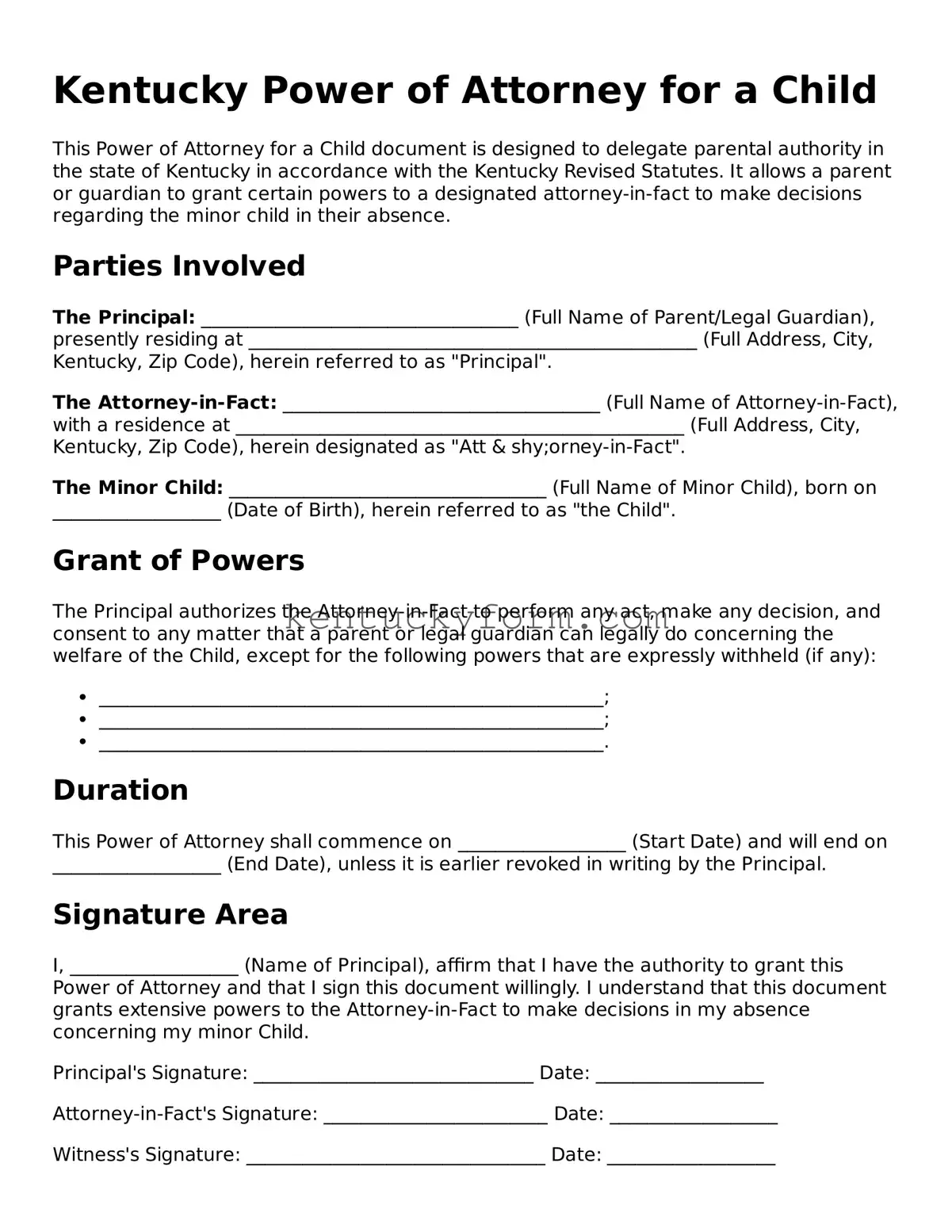Free Power of Attorney for a Child Form for the State of Kentucky
The Kentucky Power of Attorney for a Child form is a legal document that allows a parent or guardian to grant decision-making authority over their child's care to another individual. This authority can cover a range of decisions, from medical to educational, ensuring that the child's needs are met in the parent's or guardian's absence. For those in Kentucky looking to secure their child's welfare with confidence, filling out this form is a crucial step. Click the button below to begin the process.
Modify Document

Free Power of Attorney for a Child Form for the State of Kentucky
Modify Document

Modify Document
or
Free Power of Attorney for a Child File
One quick step left to finish
Edit, save, and download Power of Attorney for a Child online with ease.